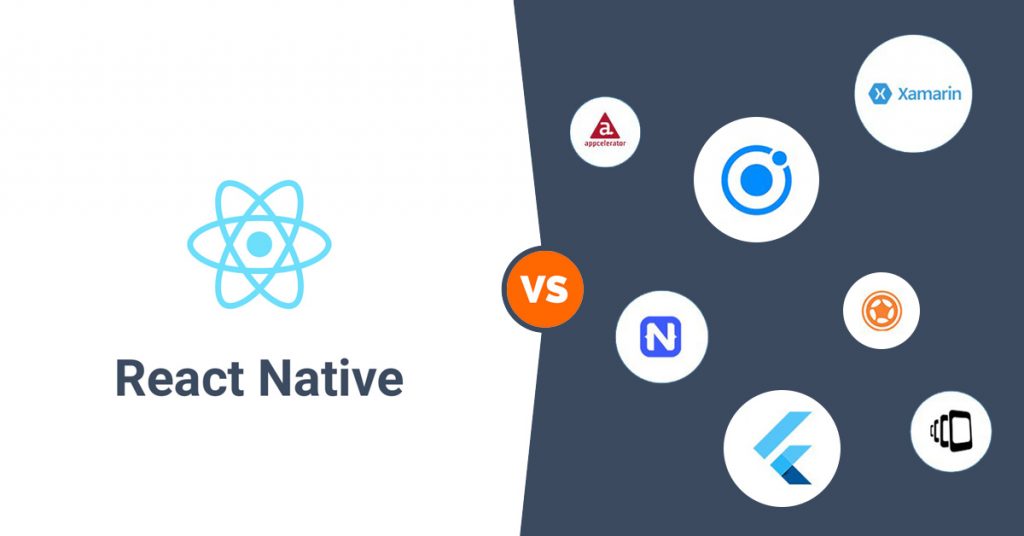
React Native is a cross-platform mobile software creation tool for iOS and Android. React Native is the perfect market solution if you choose to dramatically save time, capital, and personnel energy. This cutting-edge technology offers both conventional and cutting-edge hybrid mobile software creation approaches.
The architecture was used in world-famous apps such as Skype, Instagram, Airbnb, Walmart, SoundCloud Pulse, UberEats, Tesla, Tencent QQ, Baidu Mobile, and many others for many years of growth. React Native was created during an internal hackathon to build Native UI elements using Javascript and was open-sourced by Facebook 5 years ago.
React Native app development was the ideal mix for developers who wanted to build native UI with their preferred tooling — Javascript. React Native has expanded by leaps and bounds since then. A React Native app development company
Using React Native, developers can mimic the look and sound of the UI in a way that is more akin to Javascript and less akin to a framework. This simplifies the development process and allows the UI to react faster. So, without further ado, let’s get straight into why you should choose React Native for software creation over competing platforms.
Read: Why Should Businesses Care about Flutter 1.22 Version Update?
React Native Supports Cross-Platform Development
Every developer in the world will inform you how difficult it is to manage all Android and iOS applications due to the fact that they were written in different languages and use different frameworks.
On contrary to Flutter app development, the use of a single architecture to build the software through React Native app development ensures that the user interface is consistent across all platforms. All that is required is a skilled Javascript developer who is familiar with native UI libraries, APIs, and hybrid app creation.
React Native Assists in Faster App Development
In strict contrast to Flutter app development, React Native has been around for more than a decade, and it has a thriving online support network that is rising by the day. What does this mean for a typical developer? There are a plethora of ready-to-use related components available, so you don’t have to design it from scratch.
The likelihood of discovering a flaw in a React Native app is significantly diminished due to a single line of javascript. This means that a Minimum Viable Product (MVP) can be developed more quickly than ever before. You can quickly launch the first version of your software, your MVP, with the bare minimum of features and save everything else for later growth.
Read: The Ultimate Guide to Cross-Platform Mobile App Development
React Native Supports Code Push
Considering Flutter app development, if the software is released on the App Store or Google Play, you can remember that you overlooked a mistake or decided to tweak a minor function. Adding new functionality to native applications necessitates repeating the build process and uploading modified copies of the app to the store.
This would then go through Apple’s or Google’s approval process, in which users would have to manually install the new software.
However, this was before Code Push, which is now used by React Native app development and Apache Cordova. The App Center cloud provider dynamically updates the app as it is running, and users can see the modifications without having to re-launch the app.
Efficient Utilization of Financial Resources
We’ve already shown that React Native app development is much easier than building separate Android and iOS apps. Though saving time is an obvious benefit of using React Native, saving money is also a significant benefit.
When you are a small start-up that is just getting started, you must optimize the ROI on every dollar invested. Rather than recruiting independent iOS and Android developers, you should redirect those resources to employ a successful React developer. Though cross-platform solutions such as Xamarin and Cordova or Flutter app development are available, developers accept that they do not have the best experience.
Efficient Development
React simplifies technical activities by using easy-to-read javascript. This architecture makes use of Facebook’s UI library to generate code that is easy to understand and execute React JS. App development programs typically have varying planned results, and React Native offers a quick and easy approach to a lot of these issues.
“Hot Reload” is a core feature of React Native app development not found in Flutter app development. This feature provides software developers with a live preview of the code and its real effects, all of which occur concurrently when coding the app. This ensures that engineers commit the fewest bugs possible and that the code is “bug-free.”
Comes Integrated With Development Libraries
There are several ready-made solutions and libraries available for React Native to help with development. Testing libraries such as Jest, Chai, Mocha, and Enzyme will help you write bug-free code. Expo is a free and open-source toolchain that allows you to track the development of your software and test new functionality.
Potential errors in the code can be quickly tested using a method known as linting, and ESLint is an excellent tool for accomplishing this mission in React Native. Kind checking is even easier now, due to software like Flow and PropType.
Backed by Facebook
Facebook is heavily supporting React Native, continuously upgrading the framework with new updates and solutions to our issues. React Native has been around for more than a decade and has a sizable developer community online.
Because of the language’s ease of use and cross-platform compatibility, React Native is being adopted by an increasing number of developers. If you look at React Native’s Github repository, you’ll see that nearly 2000 developers have committed more than 16000 times in 72 branches, with over 300 updates. In their applications, Facebook employs over 750 React Native displays.
Read: Flutter App Development: Why It Is Only Way To Go In 2020?
Conclusion
Using React Native to build the app allows you to work with a smaller team of artists, engineers, QA experts, and so on. Since React Native is a common programming language, seeking a new React Native developer is simple if the existing developer has left the company while the product is still being developed. Therefore, React Native makes up one of the most preferred app development platforms for cross-platform app development.









